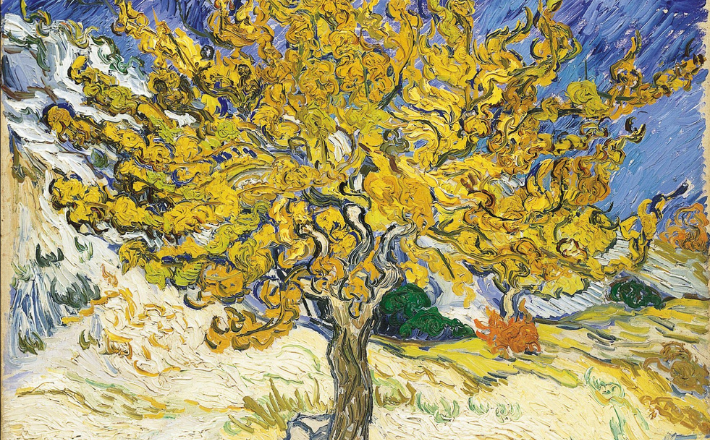Commentary on Habakkuk 1:1-4; 2:1-4
Habakkuk provides honest lament about violence and God’s response regarding a vision.
How can we access today the truthfulness and vulnerability required of prophetic lament? How might we seek to write a new vision with God for our destructive moment?
These questions lie at the heart of the book of Habakkuk, perhaps not the most popular piece of prophetic literature. It is easy to overlook and ignore the prophets we call minor. It may be tempting this week to focus on the Gospel lesson and ignore this obscure prophetic word.
Yet, the book’s profound questioning of God in the face of injustice makes it relevant still in our contemporary moment. We need true lament in response to current injustices and harm. This is the prophetic way: to face reality and envision a new way forward. And, for Habakkuk, the work begins in lament. Only then do we hear more clearly God’s language of a vision.
The reading for this Sunday contains two snippets from the book: Habakkuk 1:1–4 includes the first portion of the prophet’s complaint, while 2:1–4 provides the first part of God’s response to the complaint. Together, these two passages offer a new summary of the book’s primary message.
Habakkuk 1:1–4: The prophet’s complaint
The prophet’s vision is in the form of a biblical complaint or lament. The people are crying out to God for help but not receiving a response. So, the prophet asks, “How long, O LORD?” The phrase is echoed in Psalm 13, a lament psalm. In fact, it may be helpful to read Habakkuk 1 as a psalm of lament.[1] These types of psalms generally begin with a direct address to God before turning to a complaint. Thus, the opening questions in Habakkuk 1:2–3 are sincere queries directed to God. The declarations in verses 3 and 4 constitute the complaint.
Consider the way Psalm 13:1–2 opens, with similar emotionally raw questions:
How long, O LORD? Will you forget me forever?
How long will you hide your face from me?
How long must I bear pain in my soul
and have sorrow in my heart all day long?
How long shall my enemy be exalted over me?
The language of lament is the language of honesty.
Prophetic lament offers an assessment of the prophet’s current feelings about life. He sees violence all around him and wonders how God relates to such destruction. The prophet notes that he has been crying for help without an answer. This language can be unsettling because of its authenticity and because many of us have been taught not to question God. Yet, here, the prophet boldly questions God’s response and presence.
The questions move to statements of complaint. Justice is not possible in a world of strife. The wicked overwhelm the systems at play and pervert judgments.
And distorted justice is not justice.
The prophet’s concerns likely involve the looming threat of violence from the Babylonian Empire. The book of Habakkuk is typically dated to the late seventh century BCE, only a few decades before the Babylonian exile. The Chaldeans, also known as Babylonians, are mentioned as a menacing presence outside of today’s reading in Habakkuk 1:6. However, dating this biblical book is difficult, and the lack of explicit historical references within the book complicates the effort.
Habakkuk 2:1–4: God’s response
How does God respond to these prophetic accusations and to Habakkuk’s questioning of divine presence?
God says, “There is still a vision.”
Indeed, this vision needs to be clearly written!
The present moment may appear destructive and violent to the prophet, but a new moment is coming. This is not the whole story. The wicked will not get the final word. Violence is not the only option.
But we may need to wait for the vision to unfold. God’s response implicitly acknowledges that the current, unacceptable reality is not easily or quickly transformed. It will require some waiting.
God’s response in the first three verses of Habakkuk 2 may seem fairly general and not entirely satisfying. God speaks of a forthcoming vision, with few details. Yet, it is a response to the prophet’s concerns. It is not silence. God has heard the cry of this prophet.
The passage concludes with a phrase we might recognize from another biblical context: “The righteous live by their faithfulness” (New Revised Standard Version Updated Edition). The apostle Paul, in Romans 1:17 and Galatians 3:11, uses this phrase in support of his concept of justification. In Habakkuk, the phrase points to the fact that the righteous trust God. They live their lives in faith, trusting God’s presence.
The righteous realize that God indeed has a vision—a dream—for the world. They wait and work for this dream’s arrival among us all.
Notes
- For more information on lament psalms, see https://yalebiblestudy.org/courses/psalms/lessons/psalms-of-complaint-study-guide/.


October 5, 2025